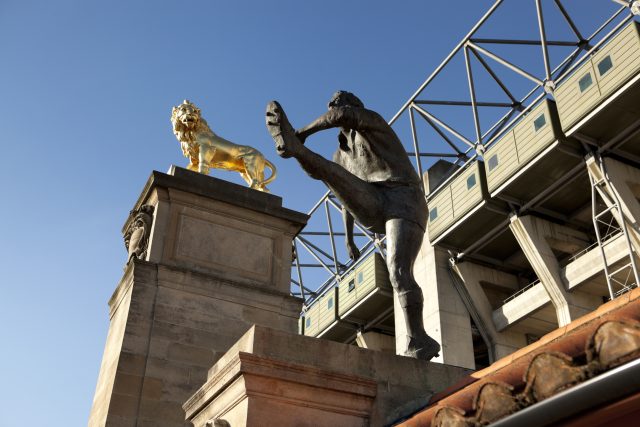Twickenham Stadium is trialling alcohol-free zones during the Six Nations in a bid to tackle excessive drinking, though some rugby fans have already described the policy as a “disaster”.

England may have just edged out Wales on Saturday, but a fair few fans were left seeing red over a test of new restrictions on drinking in the stadium, according to reports from The Telegraph.
Among the anecdotes shared concerning the trial is of one fan downing four pints after a steward told him that he could not bring them to his seat. Given a pint of Guinness at the stadium is, according to reports, £7.50, those four pints could have cost the unlucky punter £30.
One spectator quoted in the article said: “Due to lack of planning and to some extent lack of care for the fans attending, this was a disaster.”
The trial of the policy comes almost exactly a year after former England rugby coach Sir Clive Woodward described Twickenham as “the world’s biggest pub” and called on the Rugby Football Union (RFU) to “do something about the huge number of supporters who spend most of the match getting up and down to either go to the bar to buy more beers or to go to the toilet.”
At the time, an RFU spokesperson told the drinks business that alcohol sales in the stadium were “carefully” monitored and that “bar closures can lead to other behaviours such as extensive pre-drinking prior to kick-off and at half time and late arrivals causing disruption to the start of a game as well as crowding on departure and dissatisfaction from those in alcohol free zones they weren’t expecting”.
It seems that the latter fear was to some extent justified, according to The Telegraph‘s claims. With tickets costing upwards of £80, some affected by the trial have even reportedly asked for refunds.
However, in response to reports of dissatisfaction among fans, the RFU clarified that the trial only covered 627 seats out of a total of 82,000.
A spokesperson said on the matter: “We know the full match day experience is very important to fans, which is why we continue to evolve the wider Twickenham event day experiences before, during and after the game.”
While The Telegraph piece claimed that fans were not informed that they would be part of a trial if they booked seats in certain parts of the stadium, the RFU denied this.
“Twickenham Stadium introduced alcohol-free areas for our two home Guinness Men’s Six Nations fixtures on a trial basis based on supporters’ feedback. When selecting seats within these areas ticket purchasers would have clearly seen that they are buying within an alcohol-free zone and have ticked a box confirming that they have been made aware of the alcohol-free policy,” the spokesperson claimed.
According to the RFU, feedback from the stewards suggested that the vast majority of spectators affected by the policy were aware of it before going to the match. The next England home match, against Ireland, is on 9 March and will also see an alcohol-free area trialled.
“To understand the views of fans we conduct surveys after each game about their experience and encourage feedback from those sitting in these areas so that we can review ahead of the Ireland fixture. We will also be gaining feedback and insight from our own staff managing those areas on Saturday,” they concluded.
If the RFU is indeed correct and the anger surrounding the policy has been overblown, then it could well become a permanent policy for certain zones of the stadium. In football league games by contrast, any drinking “within sight of the pitch” has been banned for decades, meaning that fans can buy beer in the stadium, but they cannot bring it with them into the stands.
It isn’t just England that has cracked down on stadium drinking. Cardiff’s Principality Stadium, where Wales plays its home games, does not serve alcohol during the second half of matches in a bid to curb incidences of bad behaviour.
While alcohol-free zones might dent drinks sales in the stadia, the Six Nations has provided a much-needed annual boost to the pub sector, with sales up by 42% in the first weekend of the tournament.
This article originally appeared on the drinks business.




